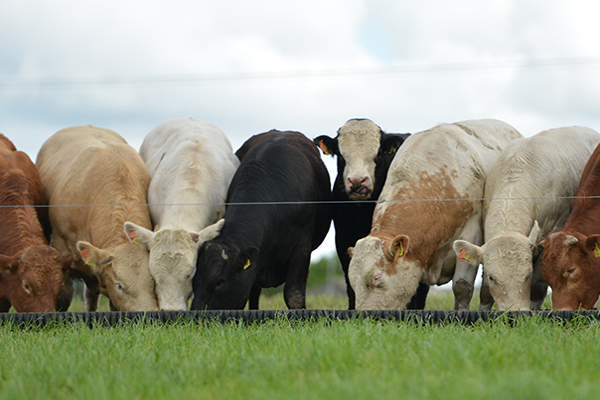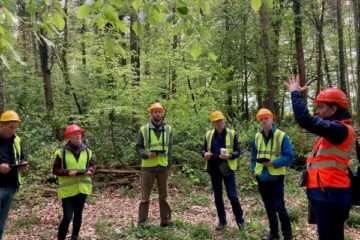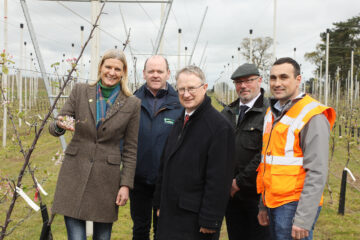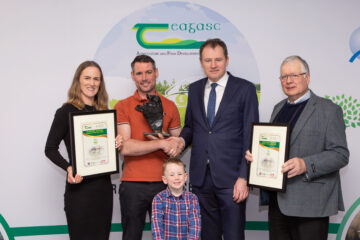Minister for Agriculture, Food and the Marine, Charlie McConalogue TD, and Minister of State with special responsibility for research and innovation, Martin Heydon TD, announced new scientific advancements in feed additives to reduce livestock methane emissions.
The announcement comes ahead of the upcoming “Agriculture and Climate Change – Science into Action” conference on 15th November 2023 at the Aviva Stadium.
The additives were tested in indoor beef systems but have the potential for use in pasture-based systems. The research also demonstrated significant potential for slurry additives to inhibit and reduce emissions from manure storage.
The significant findings come from the project ‘Meth-Abate’ which is supported by €1.248 million of funding from the Department of Agriculture, Food and the Marine and the Department of Agriculture, Environment and Rural Affairs (DAERA) in Northern Ireland. The collaborative research is led by Professor Sinead Waters in Teagasc and Professor Vincent O’Flaherty in University of Galway.
The project, which began in 2019, has demonstrated:
• A new ruminant feed additive that can reduce methane emissions by 28% in indoor systems in beef cattle. The research is now progressing to further validate this and to investigate the potential for it to be formulated in pellet form or as a bolus for longer-lasting effects to facilitate application in pasture-based production systems.
• A 30% reduction of indoor methane emissions in growing beef cattle offered a forage-based diet with the inclusion of the dietary supplementation 3-NOP.
• A >80% reduction in greenhouse gas emissions from long-term storage of liquid manures and slurries using a new oxidising slurry additive. Further research and demonstration trials are ongoing to test its use in Irish systems
Commenting on these important scientific advancements to reduce methane emissions, Minister McConalogue said, “we know that methane accounts for the majority of Irelands Agricultural greenhouse gases, mainly from livestock but also stored slurries and manures. We also know the importance of our ruminant farming sector to the economy and to rural Ireland. Suffice to say this research demonstrating the potential of feed and manure additives to reduce emissions from livestock farming is very welcome. Further research, funded by my department, is underway to move this technology from being successful in an indoor system to being successful and utilisable in our world-renowned outdoor pasture-based system. I will continue to support science that brings forward effective solutions for farmers, and our upcoming Agriculture and Climate Change conference will be a valuable opportunity to discuss both the science that is policy and implementation ready but also where emerging science could lead us in the future.”
Minister of State Heydon said, “I am a firm believer that science and innovation can provide the solutions we need to reduce the emissions profile of our food production in Ireland. Feed and manure additives have the potential to play a significant part in this. This collaborative work bringing together both North and South and with industry, is to be highly commended. These early findings are indicative of the strong scientific advancements that will be presented at the forthcoming Agriculture and Climate Change conference on the 15th November, and the next steps that will be taken to develop additives that are suited to our pasture-based livestock systems.”
Co-ordinator of the Meth-Abate project, Professor Sinead Waters, said, “the ‘Meth-Abate’ team are delighted to report that this project has facilitated the evaluation and development of promising feed and manure additives. We have demonstrated that dietary supplementation in an Irish indoor beef system can significantly reduce methane emissions from several feed additives. While research continues the development of the effectiveness of these additives for pasture-based systems, we are excited at the preliminary results coming from our work.”



